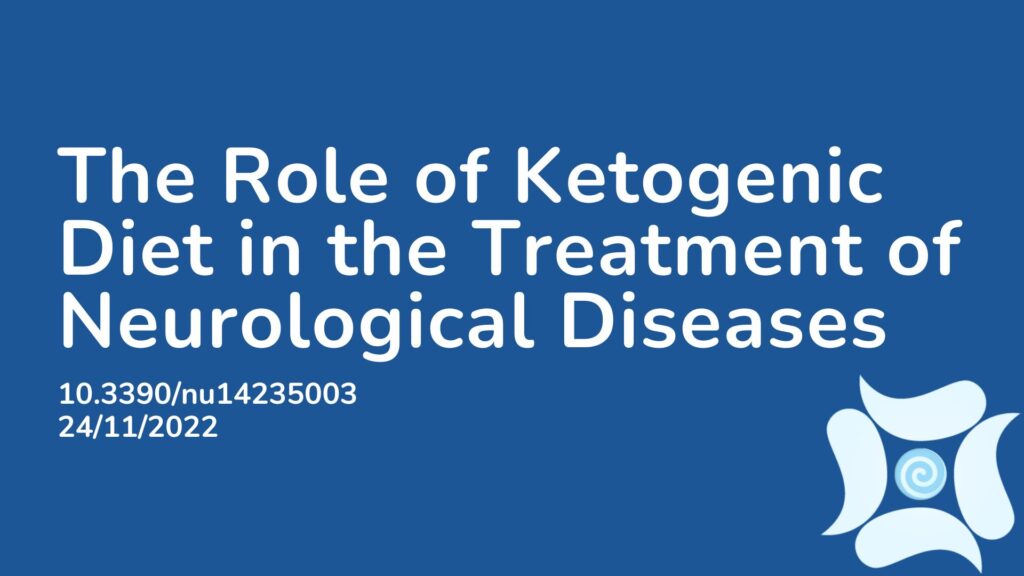Summary:
The rapid rise in neurological diseases presents a significant global health challenge. These diseases are now the second leading cause of death and the primary cause of disability worldwide. Addressing the growing prevalence of neurological diseases requires a comprehensive approach. One promising area is the ketogenic diet, which induces ketosis by increasing fat intake and reducing carbohydrates, mimicking the effects of fasting without causing malnutrition. Historically, fasting has been used to treat epilepsy, and the ketogenic diet provides similar benefits. Since its introduction in the early 20th century as a treatment for epilepsy, the ketogenic diet is now being explored for other neurological conditions, and a growing body of research highlights its potential therapeutic applications. This paper aimed to analyze the available scientific evidence on the role of the ketogenic diet in treating neurological diseases such as epilepsy, Alzheimer’s disease (AD), Parkinson’s disease (PD), multiple sclerosis (MS), and migraine. The ketogenic diet has shown various mechanisms of action in these conditions, including reducing inflammation and reactive oxygen species (ROS), restoring the myelin sheath, promoting mitochondrial health, improving neuronal metabolism, lowering glucose and insulin levels, modulating gut microbiota, increasing dopamine production, reducing neuronal excitability, and more. A summary of the available research, including randomized controlled trials, highlighted the ketogenic diet’s effectiveness in treating epilepsy and showed promising potential for AD, PD, MS, and migraine. The diet also demonstrated advantages over non-ketogenic diets in these therapies, proving to be safe and feasible.
Abstract:
Over a hundred years of study on the favourable effect of ketogenic diets in the treatment of epilepsy have contributed to a long-lasting discussion on its potential influence on other neurological diseases. A significant increase in the number of scientific studies in that field has been currently observed. The aim of this paper is a widespread, thorough analysis of the available scientific evidence in respect of the role of the ketogenic diet in the therapy of neurological diseases such as: epilepsy, Alzheimer’s disease (AD), Parkinson’s disease (PD), multiple sclerosis (MS) and migraine. A wide range of the mechanisms of action of the ketogenic diet has been demonstrated in neurological diseases, including, among other effects, its influence on the reduction in inflammatory conditions and the amount of reactive oxygen species (ROS), the restoration of the myelin sheath of the neurons, the formation and regeneration of mitochondria, neuronal metabolism, the provision of an alternative source of energy for neurons (ketone bodies), the reduction in glucose and insulin concentrations, the reduction in amyloid plaques, the induction of autophagy, the alleviation of microglia activation, the reduction in excessive neuronal activation, the modulation of intestinal microbiota, the expression of genes, dopamine production and the increase in glutamine conversion into GABA. The studies discussed (including randomised controlled studies), conducted in neurological patients, have stressed the effectiveness of the ketogenic diet in the treatment of epilepsy and have demonstrated its promising therapeutic potential in Alzheimer’s disease (AD), Parkinson’s disease (PD), multiple sclerosis (MS) and migraine. A frequent advantage of the diet was demonstrated over non-ketogenic diets (in the control groups) in the therapy of neurological diseases, with simultaneous safety and feasibility when conducting the nutritional model.
Article Publication Date: 24/11/2022
DOI: 10.3390/nu14235003



